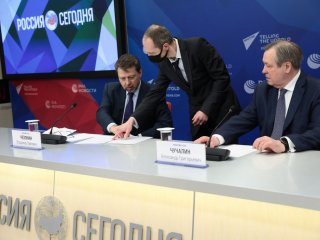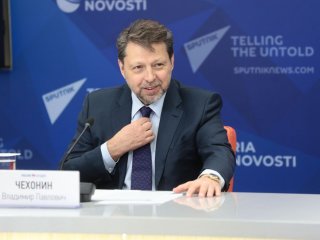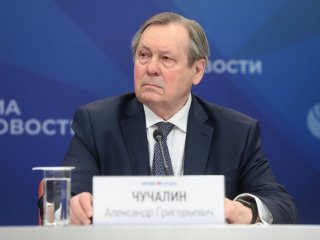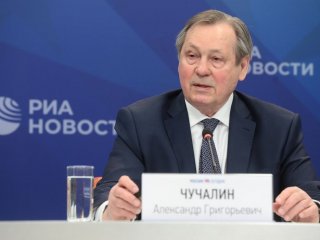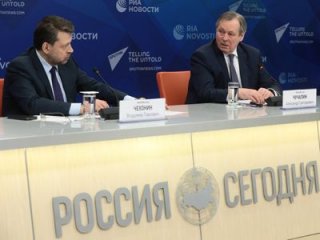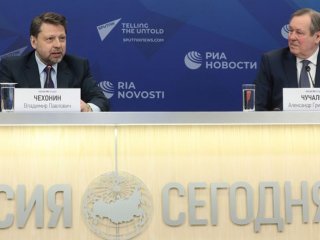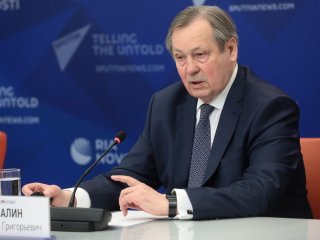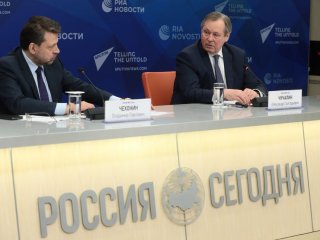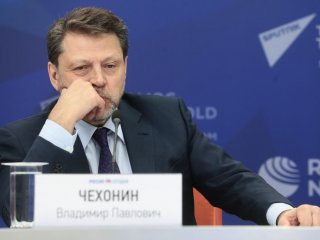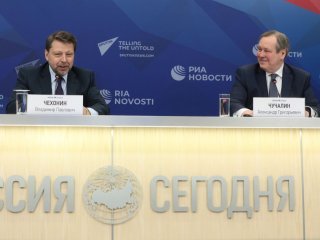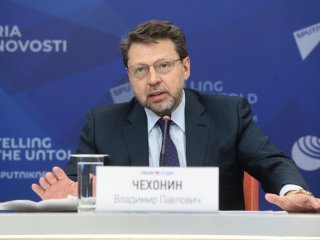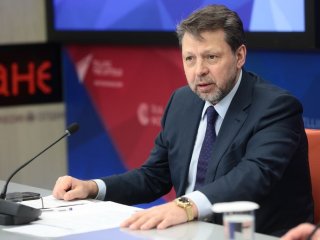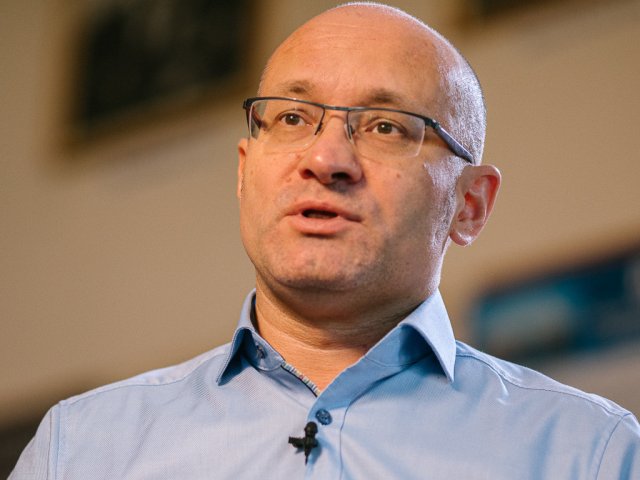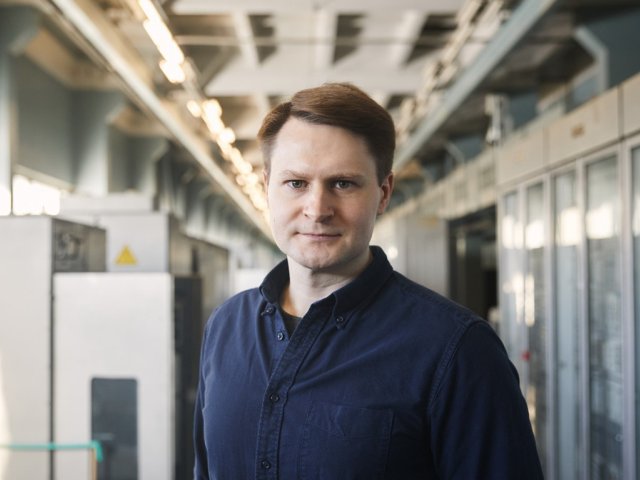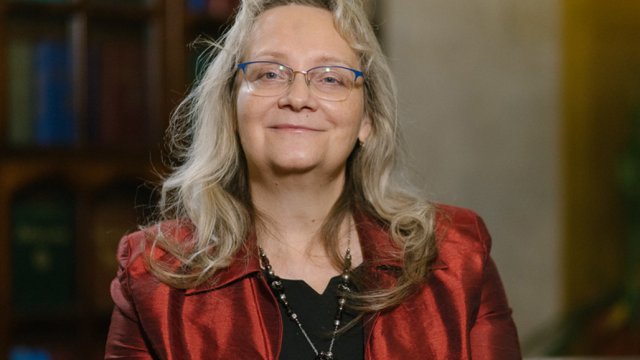On April 15, 2021, at 11:00, RAS Scientific Council for Life Sciences held an online meeting on the subject "Post-COVID-19 Rehabilitation: From Chronic Fatigue Syndrome to Pulmonary Fibrosis."
The meeting was hosted by Vice President of RAS, Chairman of the Council, Academician Vladimir Pavlovich Chekhonin.
Co-host: RAS Academician Alexander Grigoryevich Chuchalin, head of the Department of Hospital Therapy of N. I. Pirogov Medical University, Chairman of the Board of the Russian Respiratory Society, member of the Russian Federation Commission for UNESCO Affairs.
The meeting was held at Rossiya Segodnya’s International Multimedia Press Center and broadcast simultaneously at the Scientific Russia portal.
Attendants:
- Oksana Mikhailovna Drapkina, Corresponding Member of the Russian Academy of Sciences, director of the National Research Center for Preventive Medicine, chief visiting expert in therapy and general medical practice of the Ministry of Healthcare of the Russian Federation. Head of the Federal Vaccination Advisory Center.
- Galina Lvovna Ignatova, head of the Department of Therapy of the Institute for Professional Development of the Ministry of Healthcare of the Russian Federation, Doctor of Medical Sciences, Chief Pulmonologist of the Ural Federal District.
- Oksana Anatolyevna Svitich, Corresponding Member of the Russian Academy of Sciences, director of the I. I. Mechnikov Research Institute of Vaccines and Sera.
- Alexander Nikolayevich Razumov, RAS Academician, professor, Honored Scientist of the Russian Federation, head of the Department of Restorative Medicine, Rehabilitation and Spa Medicine of the First Moscow State Medical University named after I. M. Sechenov. President of the State Autonomous Healthcare Institution, Moscow Scientific and Practical Center for Medical Rehabilitation, Restorative and Sports Medicine under the Moscow Department of Healthcare.
- Mikhail Petrovich Kostinov, Doctor of Medical Sciences, Professor, head of the Laboratory of Preventive Vaccination and Immunotherapy of Allergic Diseases, Division of Allergology, RAS Research Institute of Vaccines and Sera named after I. I. Mechnikov.
The Scientific Russia portal was broadcasting the event live:
11.00 - The online conference begins
11.02 - Academician Vladimir Chekhonin, Vice President of RAS and the chairman of the Council, speaks about the Long COVID syndrome and the impact of the virus on human body
11.03 - Alexander Chuchalin, RAS Academician, head of the Department of Hospital Therapy of N.I. Pirogov Medical University, Chairman of the Board of the Russian Respiratory Society, member of the Russian Federation Commission for UNESCO Affairs, speaks about the Long COVID syndrome and how our views of the disease evolved over the past year and a half. “Over the past one and a half months, attention has been focused on the Long COVID syndrome – the condition of a person who recovered from the infection,” the speaker said.
11.05 - Alexander Chuchalin talks about the chronic fatigue syndrome in COVID-19 survivors. According to him, such symptoms were observed in about 27% of patients. The heart and lungs are also affected by the virus. Obesity is conducive to the development of the Long COVID syndrome.
11.10 - The speaker talks about international developments, including the creation of an electrochemical generator for nitrous oxide production.
11.11 - “The virus enters the body through the nasal mucous membrane even though there are other pathways as well”
11.12 - “The virus can only survive inside a biological cell. Otherwise, it dies.”
11.14 - Alexander Chuchalin describes the mechanism underlying disease progression. He maintains that the virus initially enters the upper and then lower respiratory tract.
11.17 - According to him, the first period is associated with the entry of the virus and its replication, before the body responds with an inflammatory reaction.
11.20 - The Long COVID syndrome is associated with impairment of lungs, pancreas, liver, kidneys and several other organs.
The chronic fatigue syndrome manifests itself as cognitive dysfunction, inability to work, etc.
“Americans believe COVID-19 has led to a stressful state of society. 8 out of 10 people indicated that the pandemic has led to stress. It’s really startling – I know no other disease that would have such an effect,” said the scientist.
11.25 - The speaker talks about the state of the virus upon exposure to temperatures greater than 50°C.
“We developed the concept of thermal vaccination,” said Alexander Chuchalin.
11.30 - Academician Chuchalin talks about the development of a new direction in medicine, the use of gases.
“For patients, this is a basic therapy to help themselves recover from the post-COVID state,” the scientist said.
11.31 - Academician Alexander Chuchalin has completed his speech.
11.33 - Alexander Chuchalin addresses questions from the audience.
11.35 - “Fibrosis is a highly relevant issue but so far we cannot tell the percentage of patients who will develop this condition,” the academician said. According to him, the drug Longidase (bovhyaluronidase azoximer) should be administered to prevent development of the syndrome.
11.38 - A presentation by Oksana Drapkina, Corresponding Member of the Russian Academy of Sciences, director of the National Research Center for Preventive Medicine, chief visiting expert in therapy and general medical practice of the Ministry of Healthcare of the Russian Federation, and the head of the Federal Vaccination Advisory Center.
11.43 - Oksana Drapkina talks about the creation of the Register of Suspected and Confirmed Cases of COVID-19 and Community-Acquired Pneumonia Among Patients Hospitalized Between April 6 and July 2, 2020.
11.45 - “More than half of patients who contracted the disease had cardiovascular conditions.”
11.46 - “The longer the patient stayed at home, the worse his prognosis was.”
11.47 - “Within 6 months, hospital readmissions were observed in 11% of patients.”
11.49 - According to Oksana Drapkina, it is important to follow the body’s immune response to the virus closely.
“We want to compare how the clinical picture changes in patients with cardiovascular disease who had the disease and in those who did not.”
11.53 - “We encounter patients in the age range of 60 to 85 in whom post-disease problems are more common. Admissions of young patients also happen but these are dominated by neurological manifestations of the Long COVID syndrome.”
11.53 - Oksana Drapkina has completed her presentation.
11.55 - A presentation by Galina Ignatova, head of the Department of Therapy of the Institute for Professional Development of the Ministry of Healthcare of the Russian Federation, Doctor of Medical Sciences, Chief Pulmonologist of the Ural Federal District.
11.56 - “It is crucial to prevent and mitigate pulmonary fibrosis in COVID-19 survivors.”
11.59 - The speaker talks about the efficacy of Longidase that should be administered over a long time.
“The drug produces a beneficial effect,” Galina Ignatova emphasized. She explained the effect that was achieved after the use of such a drug. Citing an example, she told that a patient with 70% lung impairment had the lesion diminish significantly after 6 months of treatment.
12.03 - Galina Ignatova completes her presentation.
12.05 - A presentation by Alexander Razumov, RAS Academician, professor, Honored Scientist of the Russian Federation, head of the Department of Restorative Medicine, Rehabilitation and Spa Medicine of the First Moscow State Medical University named after I.M. Sechenov, President of the State Autonomous Healthcare Institution, the Moscow Scientific and Practical Center for Medical Rehabilitation, Restorative and Sports Medicine under the Moscow Department of Healthcare.
12.06 - Alexander Razumov outlines the general principles for rehabilitation of COVID-19 patients.
12.10 - The speaker talks about rehabilitation and the chronic fatigue syndrome in patients.
12.12 - According to him, symptoms include anxiety, insomnia, nervousness, as well as fatigue.
12.15 - Alexander Razumov talks about the development of universal programs and a therapy technique based on the use of exogenous nitrogen oxide. The method has immunostimulating and anti-inflammatory therapeutic effects.
12.18 - A study by Mikhail Evgenyev shows that disease severity can be allayed by administering hydrogen sulfide.
12.21 - Alexander Razumov completes his speech.
12.22 - Oksana Svitich, Corresponding Member of the Russian Academy of Sciences, director of the I.I. Mechnikov Research Institute of Vaccines and Sera, speaks.
12.23 - Oksana Svitich talks about the restoration of immunity after contracting COVID-19.
12.29 - The speech ends.
12.32 - A presentation by Mikhail Kostinov, Doctor of Medical Sciences, Professor, head of the Laboratory of Preventive Vaccination and Immunotherapy of Allergic Diseases, Division of Allergology, RAS Research Institute of Vaccines and Sera named after I.I. Mechnikov.
12.33 - Mikhail Kostinov talks about a link between vaccination against seasonal influenza and COVID-19 morbidity. He says that flu-vaccinated patients are less likely to end up in hospital.
12.36 - “A modern vaccine acts as a powerful immunomodulator. It shapes the immunity that is necessary to protect the patient.”
12.39 - The speech ends.
12.40 - Vladimir Chekhonin thanks the participants and concludes the meeting.
Our live broadcast is over. Thank you for joining us!

